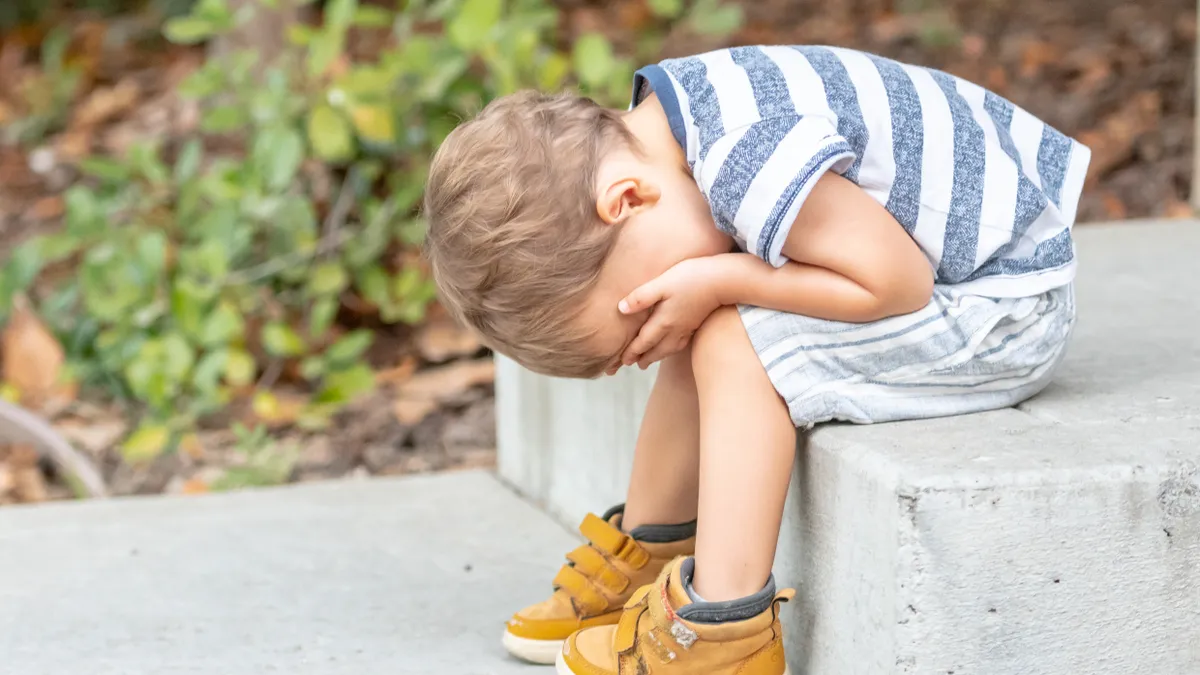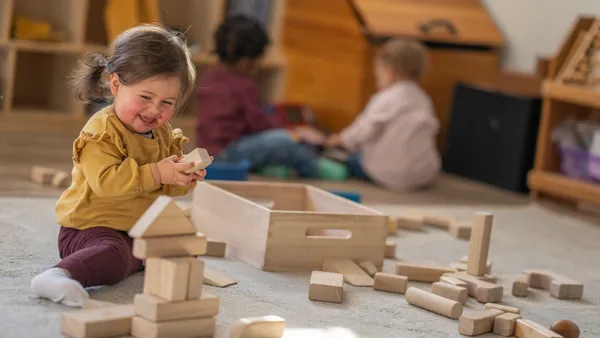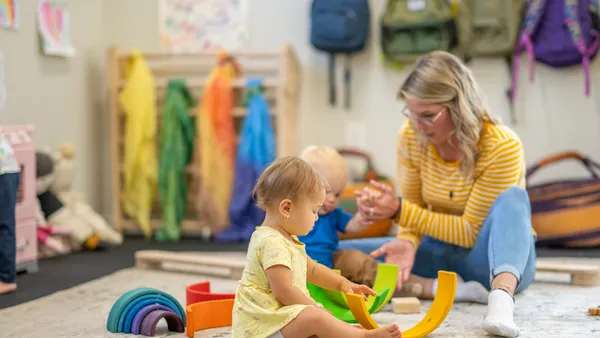When Jenn Adams asked attendees at a Thursday conference session on early childhood behaviors to stand if they had a child at school or at home who threw a temper-tantrum, bit someone or threw things within the last three months, most attendees stood.
When she asked if they themselves had had a temper-tantrum, many also stood.
"My point in that activity is behavior is behavior. And I think sometimes we put an expectation on young children that they should be able to appropriately handle the big feels that they have, when even as adults, we don't always do a great job doing that," said Adams, who is director of early childhood at Thornwell, a South Carolina faith-based provider of educational child care and other services. Adams was speaking on the second day of the National Association for the Education of Young Children's annual conference.
Equipping children with behavior and social skills rooted in trauma-informed practices and positive adult connections is especially vital in the wake of the fear, isolation and illness children and adults have experienced from COVID-19, Adams said.
Some researchers and educators have noted an increase in challenging behaviors in children of all ages due to disrupted routines and emotional toll from the pandemic. For young children who were in the early stages of learning and practicing self-control and social skills, the pandemic caused a major disruption to that learning.
When unwanted behaviors of young children escalate, it is normal for adults to feel frustrated, angry or even think the behavior is a personal affront to the adult.
"Stop taking challenging behaviors personally. It's not about you," said Adams. Rather, educators can make positive personal connections with each child and learn about what motivates their positive behaviors or triggers unwanted behaviors. Teachers can also try to understand how other factors, such as poverty or hunger, may influence a child's behavior, she said.
Children need to consistently be taught expected behaviors and praised for their positive behaviors, Adams said. And teachers can change their perspective of unwanted behaviors from blaming the child to understanding why the child is acting that way.
"When we only focus and hone in on the negative, we miss the opportunity to help them become the very best people that they're supposed to be," she said.
She described one scenario of a young child calling a teacher several curse words. When Adams talked to the child, she learned the language was used in the child's home and that the child didn't understand those words were inappropriate for school. But instead of referring to the language as "bad words," which might imply that the speaker was a bad person, Adams explained there may be some words used at home that shouldn't be said at school. The two even went through each curse word individually to discuss what's not appropriate to say at school.
A positive teacher-child relationship means the teacher understands each child's individual needs, and, to the extent possible, there should be flexibility in certain school routines to meet those needs, Adams said. For example, at her school, if a child is hungry, they get to eat, and if a child is tired, they can sleep.
"There can't be a carte blanche response to every single behavior, because every single child is coming from a different area," Adams said.
Session attendee Kyara Lambert, a teacher at Morningside Presbyterian Preschool in Atlanta, said she's seeing different behaviors in the classroom from the pandemic's impact on children's ability for self-expression and having regular routines. Lambert said while it can be difficult to meet all the individual needs in a classroom, what's important are those positive relationships.
"We have to realize, and really be able to see, where children are and nurture them in the ways that they need," she said.













